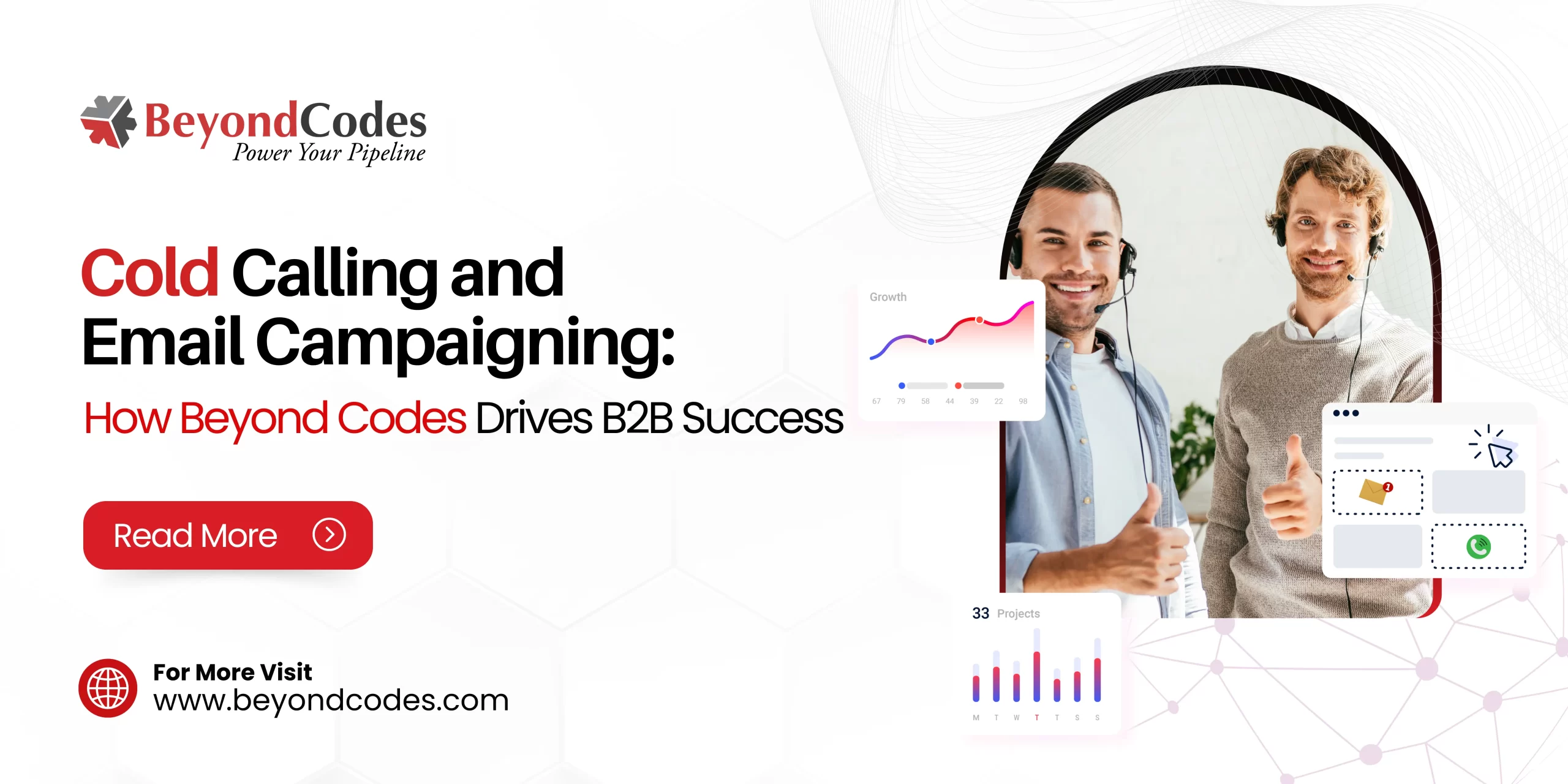Discover the latest strategies for maximizing B2B lead generation in today’s era of accountability, measurability, and automation.
In today’s business landscape, B2B marketers face a host of challenges that lead to accountability and measurability to generate leads efficiently. In addition, the new automation paradigm offers prospects for maximizing these efforts.
This article explores strategies to help companies maximize B2B lead generation under the pillars of accountability, measurability, and automation.
Understanding the New Era of B2B Lead Generation
Traditionally, B2B marketers relied on tactics such as trade shows, cold calling, and direct mail to generate leads. However, these methods often proved expensive and inefficient in capturing and nurturing potential leads.
In recent years, marketing automation has become a powerful tool for accelerating lead generation by streamlining various marketing channels, including email marketing, social media, SEO, and content marketing.
Marketing automation has revolutionized the way B2B companies generate leads. By automating repetitive tasks such as email campaigns, marketers can focus on creating engaging content that resonates with their target audience.
This approach has proven more effective in capturing and nurturing leads, resulting in higher conversion rates and lower customer acquisition costs.
The Importance of Accountability in B2B Lead Gen Marketing
Accountability in B2B lead generation marketing is critical as it enables marketers to demonstrate how their efforts are contributing to the growth of the business. It is about tracking the results of campaigns, calculating ROI, and providing transparent reporting to stakeholders.
Key metrics that show accountability include the number of leads generated, conversion rates, and customer acquisition costs.
Accountability is not just about demonstrating the effectiveness of marketing campaigns but also about identifying improvement areas.
By analyzing performance metrics, marketers can identify which campaigns are performing well and which must be optimized. This approach allows B2B companies to make data-driven decisions that lead to better lead-generation outcomes.
Measuring Success in Lead Generation Efforts
Measurement is the bedrock of any lead generation effort. The key to unlocking the full potential of marketing automation lies in continually tracking, measuring, and optimizing your campaigns’ outcomes.
By analyzing performance metrics, marketers can learn what works and what doesn’t, allowing them to make evidence-based decisions on how, when, and where to target potential leads.
Measuring success is not just about tracking the number of leads generated; it is also about understanding the quality of those leads.
By analyzing the behavior of potential customers, marketers can identify which leads are more likely to convert, allowing them to focus their efforts on those leads. This approach results in higher conversion rates and more efficient use of resources.
Embracing Automation for Improved Efficiency
Marketing automation enables B2B marketers to streamline their marketing efforts, from lead generation to lead nurturing and conversion.
Automation allows a greater understanding of a potential customer’s behavior, using insights to generate greater customization and improve communication on their path toward conversion.
Moreover, automation is an excellent tool for improving overall efficiency by taking care of time-consuming tasks such as repetitive email campaigns and social media posts.
By embracing automation, B2B companies can free up their marketing teams to focus on creating high-quality content that resonates with their target audience. This approach results in more effective lead generation, higher conversion rates, and more efficient use of resources.
Strategies for Maximizing B2B Lead Generation Services
Targeting the Right Audience
B2B lead generation success depends on identifying and targeting the right audience. This can be accomplished by utilizing information via techniques like data mining or researching your target market’s online presence.
An accurate understanding of your potential customer’s profile can lead to more effective targeting and higher conversion rates.
One way to ensure you target the right audience is by conducting market research. This can involve analyzing industry trends and identifying pain points your target audience may be experiencing.
By understanding these pain points, you can create content addressing them and position your company as a solution provider.
Creating High-Quality, Relevant Content
Creating and providing valuable, high-quality content is vital for engaging potential customers, building trust, and establishing authority.
In addition, companies can obtain valuable insights by analyzing trends, monitoring competitors, and creating optimized content for search engines.
It’s important to note that not all content is created equal. To be effective, your content should be relevant to your target audience and provide them with value.
This can include educational content that helps them solve problems or make informed decisions and entertaining content that keeps them engaged.
Leveraging Multi-Channel Marketing
Multi-channel marketing is about reaching potential leads through various channels such as email, social media, and paid advertisements. It allows you to reach customers regardless of where they are while building brand recognition across multiple platforms.
While multi-channel marketing can be effective, ensuring your messaging is consistent across all channels is essential.
This can involve creating a brand style guide that outlines your company’s tone, voice, and messaging and ensuring that all content is optimized for each channel.
Personalizing the Buyer’s Journey
A successful lead generation strategy is centered on creating a personalized buyer’s journey.
Personalization of customer interactions delivers targeted messaging tailored to the individual customer based on various data inputs and makes your marketing strategy more effective.
One way to personalize the buyer’s journey is by creating buyer personas. These are fictional representations of your ideal customers based on accurate data about customer demographics and online behavior.
By creating buyer personas, you can better understand your target audience and create content that resonates with them.
Another way to personalize the buyer’s journey is by leveraging marketing automation. This involves using software to automate repetitive marketing tasks and deliver personalized messaging to customers based on their behavior and preferences.
By automating these tasks, you can free up time to focus on more strategic initiatives while still delivering personalized messaging to your customers.
Implementing Effective B2B Marketing Automation
Marketing automation has become an essential tool for B2B marketers. Automating repetitive tasks and utilizing advanced analytical techniques, B2B marketers can save time, understand customer behavior, and offer personalized experiences that lead to higher conversion rates.
However, evaluating your business needs, staff capacity carefully, and customer leads before investing in automation tools is essential.
Selecting the Right Marketing Automation Tools
When selecting marketing automation software, it is important to choose software that aligns with your goals, can integrate with your existing software, and provides the scalability to grow alongside you over time.
Many different software options are available, so it is vital to research and compare other options to find the right fit for your business.
Once you select your marketing automation software, ensure your team is trained and equipped to use it effectively. This may involve additional training or hiring new staff members with the necessary software management skills.
Integrating Automation into Your Marketing Strategy
Integrating automation into your marketing plan goes beyond choosing software. It involves adapting and creating workflows, automating repetitive tasks, and aligning your team to utilize these tools effectively.
By streamlining routine tasks, your team can focus on more strategic initiatives that drive growth.
Automation also enables more advanced analytical techniques to fully understand customer behavior. By tracking customer interactions with your brand, you can gain valuable insights into their preferences, needs, and pain points.
This information can then create more personalized experiences that drive engagement and conversion.
Measuring the Impact of Automation on Lead Generation
The final step in maximizing B2B lead generation through automation is measuring its impact. You can measure the value of automation by analyzing the success of campaigns before and after automation.
Tracking metrics such as marketing ROI, conversion rates, and revenue growth will help demonstrate to stakeholders the quantitative benefits of marketing automation, allowing accountability and transparency to be maintained throughout the process.
In conclusion, marketing automation is a powerful tool for B2B marketers, but it is essential to carefully evaluate your business needs and select the right software to achieve your goals.
In addition, integrating automation into your marketing strategy and measuring its impact can drive growth and improve the customer experience.
How Can Companies Ensure Accountability and Transparency in B2B Marketing Services?
Setting Clear Goals and Expectations
To ensure accountability in B2B Lead Generation efforts, it is necessary first to establish clear goals and expectations.
This process should guide the team’s overall strategy and align with the broader business objectives.
Benchmarks and KPIs should be established and monitored to measure the success of the campaigns, and stakeholders must be kept informed.
Regularly Monitoring and Reporting on Performance Metrics
Monitoring and reporting on performance are prerequisites for accountability, ensuring they are maintained throughout the entire lead generation process.
It is essential to have specific performance metrics to track and analyze the outcomes of each campaign’s efforts accurately. Automation tools often provide these metrics as part of their capabilities or as an add-on.
Fostering a Culture of Continuous Improvement
B2B marketers should embrace a continuous improvement mindset by using metrics to learn from their campaigns’ outcomes.
Continuous improvement culture helps you to identify areas for improvement to personalization, content creation, targeting, or measurement techniques and then make the necessary changes to achieve better results.
Approach each campaign critically toward consolidating its strengths, weeding weaknesses, and improving the customer journey.
Conclusion
Maximizing B2B lead generation requires a concerted effort across multiple areas, primarily accountability, measurability, and automation.
The above strategies offer a guideline for organizations to capitalize on the benefits of automation to improve their lead-generation efforts significantly.
B2B businesses can enrich customer experiences and generate new leads by creating personalized, high-quality content and targeting the right audience.
In addition, automation further streamlines the lead generation process while monitoring performance metrics and continuous improvement fosters a culture of accountability and transparency.






